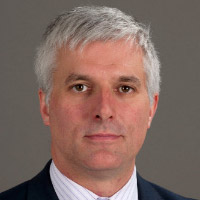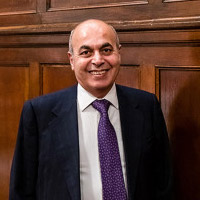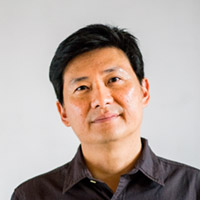Personalised medical devices: why the fuss?
View a panel discussion about the challenges and recent developments in personalised medical device technology, from the perspective of a physician, industry leaders, regulatory authority and researchers.
Panel discussion
Australia is at the forefront of new technologies in personalised implants and biomechanics. Personalised medical devices such as dental braces, orthopaedics and maxillofacial implants, and artificial limbs are being used more than ever. However, there are challenges that limit their widespread use. Experts will discuss the challenges and recent developments in personalised medical device technology.
3 March 2021
Panelists

Assoc Prof Andrew Bucknill
Head of Orthopaedic Surgery at the Royal Melbourne Hospital
Andrew Bucknill is Head of Orthopaedic Surgery at the Royal Melbourne Hospital, who has an interest in hip and knee surgery as well as pelvic and acetabular trauma. Working exclusively at the Royal Melbourne Hospital, he was instrumental in improving the quality of care and training within Department of Orthopaedic Surgery. He is also an Associate Professor at the University of Melbourne, sits on the Melbourne Health Human Research and Ethics Committee and is on faculty for the internationally-renowned AO Foundation courses for fracture management.

Rebecca Bateson
Assistant Director, Devices Emerging Technology and Diagnostics, Therapeutic Goods Administration
Rebecca Bateson is an Assistant Director in the Devices Emerging Technology and Diagnostics Section at the Therapeutic Goods Administration (TGA), serving as the project lead responsible for the introduction of the suite of regulatory reforms known as the personalised medical devices framework. Rebecca has a strong background in stakeholder engagement with the TGA, having previously managed the Medical Devices Information Unit and the Devices Secretariat. Her work has included developing legislative instruments, guidance for stakeholders and resources for both internal and external stakeholders to improve day-to-day business at the TGA. In 2016, Rebecca was awarded the Department’s Australia Day Award for Service in recognition of her commitment to stakeholder engagement.

Eric Bert
Chief Operations Officer, 3DMeditech
Eric Bert has 35 years of Disruptive Technology Management experience and leads 3DMEDiTech in the development of new solutions for personalised medical devices and COVID-19 testing.
Eric holds a Bachelor of Science (Mechanical Engineering) from the University of Massachusetts and is a veteran of the 3D Printing / Additive Manufacturing Industry. With broad global experience in medical device design, manufacturing and regulatory compliance, Eric is also the inventor of 3DMEDiTech’s world-leading COVID-19 3D printed nasal and saliva swab devices and solutions.

Prof Sir Saeed Zahedi OBE
Chair of Product Advisory, Blatchford
Professor Sir Saeed Zahedi, Technical Director at works for Blatchford, a global company who develops and manufactures orthopaedic products, has over 40 years of experience in the field of prosthetics. He was responsible for the commercialisation of the first Intelligent Prosthesis in the early 1990s and the world’s first fully integrated limb system, Linx, in 2014.
In 2018, Professor Sir Zahedi was made a Knight Bachelor of the British Empire for his outstanding services to Innovation and Engineering in the field of rehabilitation. Sir Zahedi is a multi-award winning author and presenter of over 170 papers, books and scientific publications and over 60 patents.

Prof Peter Lee (Chair)
Prof Peter Lee is the Director of the Australian Research Council (ARC) Training Centre for Medical Implant Technologies where he leads the largest industry-university-hospital partnership in Australia focusing on orthopaedic and maxillofacial implants. He is also the Chief Investigator in the ARC Training Centre for Personalised Therapeutic Technologies and is the Deputy Head (Research) at the Department of Biomedical Engineering at the University of Melbourne. Professor Lee’s laboratory has made significant impact in applying interdisciplinary and multi-scaled solutions for complex biomedical problem, taking research through the full value chain from design, clinical trials to commercialisation. His team developed the titanium 3D-printed Melbourne Temporal Mandibular Joint prosthesis, using comprehensive biomechanical measurements to build computational models that represent the physiology of the human jaw.